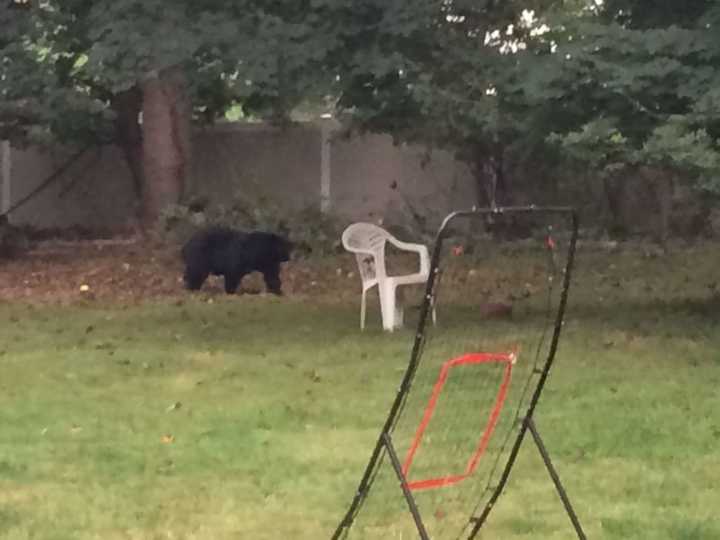Katz has lived on McNamara Road for 13 years and during that time bear sightings have been intermittent--they’d pop up here and there. But that is no longer the case for Katz who has begun to encounter black bears at her home on an almost daily basis.
“It’s just insane,” she said over the phone.
The bears are typically drawn to the smell of food and often show up and try to get into garbage cans in the neighborhood.
When dealing with black bears in a yard it is advised to talk loudly or make a loud noise from a safe distance by banging pots and pans together to scare them off.
“What scares me about it is when you honk [car horn] they’re supposed to be scared off and not come back. But it came back,” Katz said, suggesting the bears are growing more comfortable in the area.
Katz often talks very loudly “like a crazy person” when walking around her neighborhood in order to ward off any bears. And the concern is present when walking to a friends house at night while observing the sabbath.
She understands they don’t typically attack people but the presence of bears is still unsettling.
“I shouldn’t be scared to walk in my own neighborhood,” Katz said.
Black bear populations are largely concentrated in the Adirondacks, the Catskill region, and central/western New York but there are established populations elsewhere, including the Hudson Valley, according to the state Department of Environmental Conservation
While black bears are omnivores and largely consume berries, grasses, fruit, and insects, they will also eat human food like corn, honey, and bird seed.
According to Ramapo Police Lt. Mark Emma, if residents find themselves filling up a bird feeder every day, or it’s been knocked over, “it’s probably a bear.” And if the bears keep coming back, it’s because of food, Emma said.
The police department has received about seven bear-related calls since Aug. 9. Based on those calls sightings were concentrated in Sloatsburg, Torne Valley, and in Wesley Hills, like on Deerwood Road which isn’t too far from Katz neighborhood.
There is little officers can do that residents can’t on their own to scare the bears off: flip their sirens on and make loud noises. And often when officers respond to a bear sighting, the bear is gone before they arrive. (Katz no longer calls the police when encountering a bear, understanding there is not much they can do.)
Emma said officials from the DEC typically won’t respond to a bear incident unless the bear is wounded or stuck in a tree.
And to date there have been no calls to the police department about injuries resulting from a bear encounter, Emma said.
“This is where they live too,” Emma said.
For residents who have encountered bears: don’t leave food outside, keep garbage cans tightly locked or sealed, don’t leave out birdseed, and do not corner bears-- they become violent when cornered.
Visit the DEC website for more tips on how to handle a bear encounter.
Click here to follow Daily Voice Monsey and receive free news updates.


